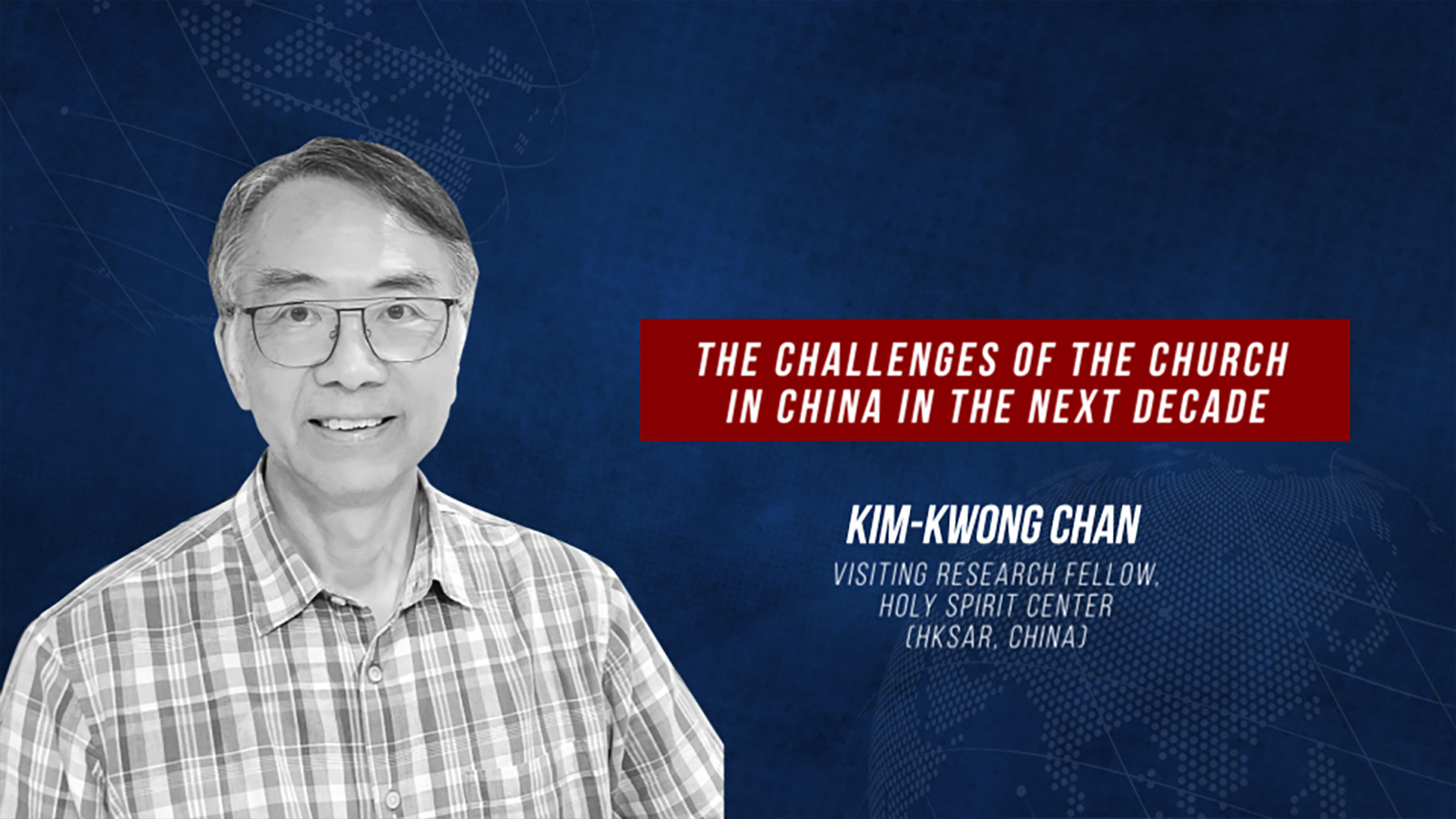Kim-Kwong Chan is a Visiting Research Fellow at the Holy Spirit Center of the Catholic Diocese of Hong Kong. He earned a BSc in Nutrition from McGill University in Canada, MDiv from China Graduate School of Theology, MA from University of Ottawa, STL from Pontifical St Paul University, PhD from University of Ottawa, and DTh from Pontifical St Paul University. Dr Chan also undertook graduate studies on agricultural economics at the University of London and post graduate Advanced Certificate in Psychoanalytic Psychotherapy under China American Psychoanalytic Alliance.
Dr Chan is an ordained minister, and vice-chair of the Christian Nationals’ Evangelism Commission. He had served as the programme director and senior fellow of the Council for Christian Colleges and Universities in Washington, D.C., the chaplain of the Chung Chi College of the Chinese University of Hong Kong, and the executive secretary of the Hong Kong Christian Council, until his retirement in 2016. He has authored and co-authored 12 books, mostly on Christianity in China. He has also published 60+ academic papers in journals and chapters in books in English, Chinese, and French. Dr Chan is the co-editor of an Internet database* on sources of Christianity from more than 2,700 volumes of county gazetteers in China.

This paper will look at the challenges ahead for the Church in China and provide a general orientation of Xi Jinping’s governance, particularly those elements with direct bearing on the present state of the Church. It will follow by highlighting several issues which would perceive as major challenges facing the Church in China in the coming decade: Ecclesial manifestation and internalization of faith, Christian Unity, Sinicization: Christianity in China or Chinese Christianity, and lastly Missiology, Diasporas and nationalistic sentiment.